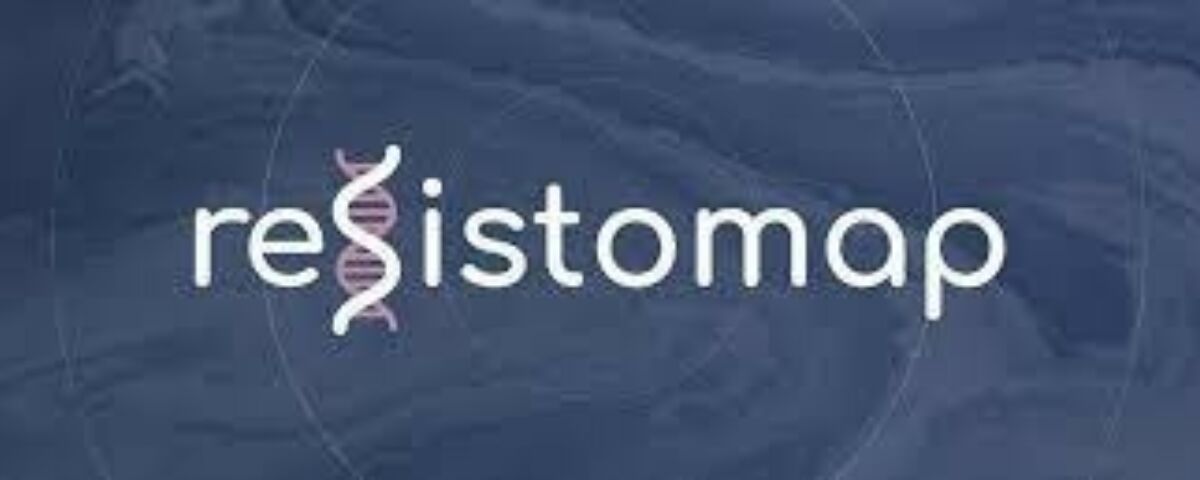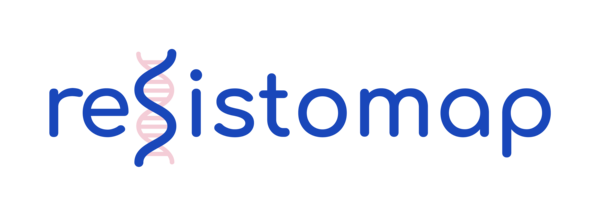




Keep this story going! Share below!
Resistomap Oy provides an advanced monitoring service for environmental antibiotic resistance, supporting governments, research institutes, the food industry, and healthcare providers. By measuring resistance levels and evaluating potential interventions, the innovation contributes directly to SDG 3 and SDG 6, and indirectly to SDG 11 and SDG 12.
Antibiotic resistance has been recognized to be one of the top global public health and development threats by the UN (World Health Organization, n.d., United Nations Environment Programme, n.d.). Monitoring antibiotic resistance in the environment is often complex, but it is essential for prevention and intervention.
Resistomap Oy provides an innovative monitoring service with a unique database and scaling system, making resistance monitoring accessible and understandable. They turn complex microbiological data into clear scale points, which can be used as a guideline for governments, research institutes, the food industry, as well as healthcare providers.
The company was founded by Dr. Windi Muziasari and William Nurmi in 2018 to address the global challenge of antimicrobial resistance. Resistomap combines data science with cutting-edge microbiology to lead in the field of environmental surveillance of antibiotic resistance. Resistomap is guided by the One Health approach, which emphasizes the fact that human, animal, and environmental health are connected. This philosophy drives its mission to deliver reliable and understandable surveillance worldwide.Resistomap Oy brings together experts from different fields, uniting them by a shared commitment to global health and sustainability. By providing monitoring as well as prevention and intervention ideas, Resistomap directly supports SDG 3: Good Health and Well-being and SDG 6: Clean Water and Sanitation. On top of that, it also contributes to the notion of Sustainable Cities and Communities (SDG 11) and Responsible Consumption and Production (SDG 12). Through its innovative scale system and extensive database, Resistomap helps leaders understand the threat that antibiotic resistance brings.

The idea of Resistomap was born out of Dr. Muziasari’s scientific and personal journey. Originally from Indonesia, she moved to Finland to pursue her PhD in microbiology at the University of Helsinki. Her research was focused on antibiotic resistance in aquaculture. This was where she discovered how antibiotics used in fish farming spread resistant bacteria through water systems. This discovery opened her eyes to the interconnectedness of ecosystems. When antibiotics are given to animals or humans, resistant bacteria inevitably spread through manure, wastewater and water. This affects communities directly. (Muziasari, 2025).
During her postdoctoral research in Gajah Mada University (Yogyakarta), she observed alarming pollution levels in rivers with no proper wastewater treatment. Even small cattle farms contributed to hundreds of resistance genes appearing downstream. This created conditions where antibiotics could become ineffective. Realizing the crisis was not only a medical issue, but also environmental and societal. She also explained, “Research is great, but we need to take action. Entrepreneurship is one way for us to make that action.” (Muziasari, 2025).
Her greatest inspiration came from witnessing the gap between what was known and what was done. While top universities had sophisticated tools to measure antimicrobial resistance, those resources were largely out of reach for policymakers, developing countries, and numerous researchers. She recognized the need for a company that could democratize access — one that provides end-to-end services, from sample collection to harmonized, cloud-based reporting. By transforming research insights into practical tools for decision-makers, Resistomap became her way of turning scientific knowledge into a global solution to one of humanity’s most pressing yet often overlooked threats. (Muziasari, 2025).
Since its founding in 2018, Resistomap has grown from a start-up into a global provider, now serving clients in over 50 countries. Its core innovation is transforming complex laboratory analysis into harmonised, cloud-based benchmarks that enable governments, researchers and industries to compare antibiotic resistance trends worldwide. This creates a clearer picture of where urgent interventions are needed. (Muziasari, 2025; Resistomap Website).
In the short term, Resistomap’s tools support universities, public health agencies and industries such as aquaculture, food production and water utilities. Standardised sampling kits and streamlined logistics allow clients without advanced labs to generate reliable data. This is particularly valuable in environments where resistance spreads rapidly, including hospitals and prisons, which Dr. Muziasari described as “hotspots” due to overcrowding and limited medical oversight. Identifying such settings helps authorities' direct resources effectively. (Muziasari, 2025; Resistomap Website).Longer-term impacts are broader. By building a harmonised global database, Resistomap is establishing the basis for an early-warning system for antibiotic resistance, supporting biosecurity and public health preparedness. The integration of artificial intelligence further enables predictive modeling of outbreaks and progress toward an autonomous biosecurity platform. (Muziasari, 2025; Resistomap Website).
Resistomap’s mission aligns with the UN Sustainable Development Goals, especially SDG 3 (Good Health and Well-being), by tackling a global health crisis, and SDG 6 (Clean Water and Sanitation), by exposing environmental dimensions of resistance. As Muziasari notes “People don’t see directly that resistance is killing, but it spreads slowly through food and water.” Making the invisible visible ensures both immediate and long-term benefits for human and environmental health. (Muziasari, 2025; Resistomap Website).
This innovation answers a current niche that is extremely specific and does not necessarily have a lot of competitors on the company's own scale. The services they provide are in a growing service industry that requires in-depth knowledge of complex and technical concepts in its operation, as well as high-cost equipment, which can make the market hard to enter. Therefore, the innovation grants the company a unique position in the market to scale up its customer base, as there are few, if any, other businesses offering a similar service and hiring professional employees who it important to work for the common good.
While not explicitly implied, innovation can be expected to raise revenue for the company if it has not already, as well as create new products or services as the company refines its innovation and builds other offerings around supporting its current innovation. Resistomap has begun to build its network around the world, and as Dr. Windi Muziasari (Personal communication, September 10, 2025) has said herself, the company’s biggest hurdle to overcome is the lack of knowledge. While they have information on their website (Resistomap, n.d.), spreading knowledge has been difficult, partially due to the complexity of topics such as micro-pollutants, antibiotic resistance, and how they spread. The spread of knowledge seems to happen mainly through a variety of speaking events as well as academic institutions that work with the company, helping build visibility for the company through the customer’s network.The innovation brings many benefits to society, such as providing an early warning system against resistance numerous benefits to society, including providing an early warning system against resistance by identifying where micro-pollutants and antibiotic resistance are occurring at rates that warrant further attention by clarifying where micro-pollutants and Antibiotic resistance is occurring at rates that warrant deeper investigation into local behaviour. In addition, they help with mapping out usage patterns, which likely can provide useful information for local authorities to avoid excessive use. While the innovation provides preventative measures in society through testing of water, land, and air against materials that lead to a spread of resistance among humans, it can also help prevent environmental loss by identifying areas where plants or animals may have resistance or are at risk of developing resistance. The risk of animals with antibiotic resistance spreading comes from possible cross-species contact, which, although rare, can still have dire consequences for vulnerable or weak ecosystems.
In addition, this innovation could help improve our understanding of the medical field by leading us to discover new information on, for example, how micro pollutants spread, how antibiotic resistances develop, what prevents or hinders antibiotic resistance development, or what can break down micro-pollutants. Innovation undoubtedly has potential, but it is more than likely that all the future potential benefits cannot even be considered right now.Get stories of positive business innovations from around the world delivered right to your inbox.

Resistomap Oy is a Finnish biotechnology company founded in 2018 by Dr. Windi Muziasari. The company specialises in monitoring antibiotic resistance in environmental samples such as water and waste water, public health, aquaculture, agriculture, livestock, and food safety.
Resistomap services are supporting education institution, research institutions, researchers, government agencies, healthcare providers, agriculture, aquaculture, lifestock and bio defense by providing advanced laboratory test results. These results are combined with cloud-based data analytics to track and understand the spread of antibiotic resistance across several ecosystems.